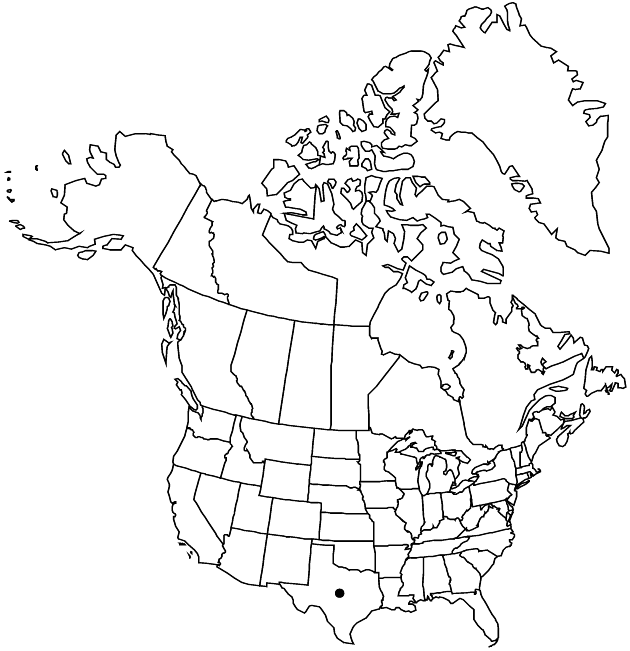Difference between revisions of "Liatris elegans var. bridgesii"
Sida 20: 598, fig. 1. 2001.
FNA>Volume Importer |
imported>Volume Importer |
||
| Line 45: | Line 45: | ||
|publication year=2001 | |publication year=2001 | ||
|special status= | |special status= | ||
| − | |source xml=https:// | + | |source xml=https://bibilujan@bitbucket.org/aafc-mbb/fna-data-curation.git/src/bb6b7e3a7de7d3b7888a1ad48c7fd8f5c722d8d6/coarse_grained_fna_xml/V19-20-21/V21_1321.xml |
|tribe=Asteraceae tribe Eupatorieae | |tribe=Asteraceae tribe Eupatorieae | ||
|genus=Liatris | |genus=Liatris | ||
Revision as of 20:56, 27 May 2020
Corms depressed-globose. Heads crowded. Phyllaries: apices petaloid, usually creamy white, sometimes initially lemon yellow fading to creamy white, rarely pale lavender, elongate and strongly recurving, petaloid portions short relative to herbaceous bases. Corollas creamy white.
Phenology: Flowering Jul–Oct(–Nov).
Habitat: Post oak savannas, open, sandy woodlands, oak and pine woodland, roadsides, fields
Elevation: 100–200 m
Discussion
Selected References
None.
Lower Taxa
None.
